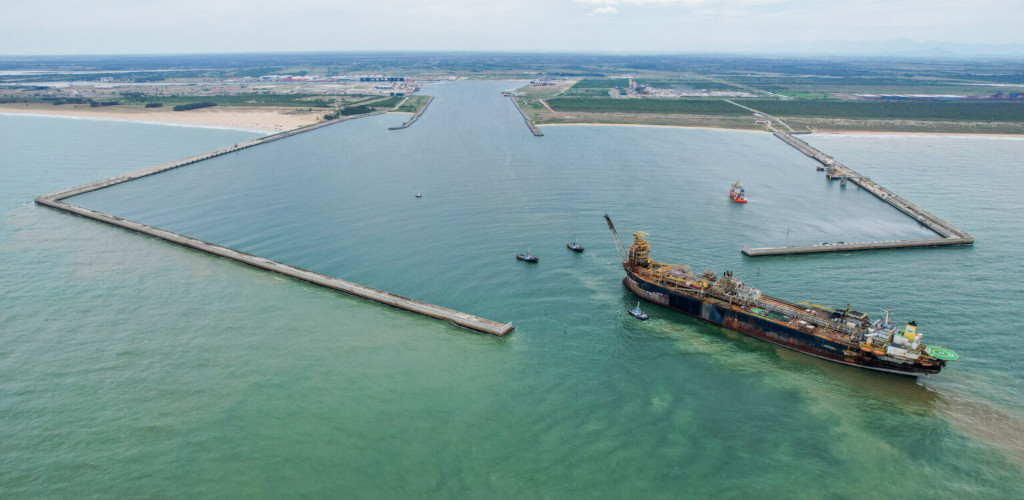Brazil’s Largest Port Complex Starts Pre-Dismantling Work on Petrobras FPSO

Port of Açu in Rio de Janeiro has begun pre-dismantling activities on the first of three floating production, storage, and offloading (FPSO) vessels owned by Petrobras, as Brazil’s largest deepwater port targets the country’s emerging decommissioning sector.
A “docking and services” contract signed last year with Brazil’s state energy giant calls for the 337-meter-long FPSO, dubbed P-33, to be temporarily berthed at the port complex while hull cleaning activities and disposal of the vessel’s effluent and waste are carried out.
The units can remain at the Port of Açu for up to three years, according to the contract.
The work is part of the port’s long-term strategy to house Brazil’s first sustainable decommissioning hub. As it stands, Brazil has no specialized terminal for decommissioning vessels and rigs, with units often shipped to India or other Asian countries for dismantling.
“We want to make Açu a platform of excellence in sustainable decommissioning, following the best international practices and offering local content for the final phase of the exploration and production cycle,” said Eugenio Figueiredo, CEO of Porto do Açu.
Petrobras recently said it was planning to invest nearly US$10 billion over the next five years to dismantle 26 platforms including eight FPSOs, 360 wells and 2,500 kilometers of risers and flowlines.
Decommissioning projects are already a key source of work for breakbulk movers in Brazil.
The Port of Açu believes it is well-placed to capitalize on the demand, pointing to its proximity to the offshore oil-producing Campos Basin, the capacity to berth multiple units and equipment for extended periods, its licensing and ability to remove biofouling, and its integration with Brazil’s existing scrap logistics network.
The complex, which boasts more than 130 square kilometers of land – twice the size of Manhattan – already houses 22 companies and 11 private terminals including a multi-cargo terminal (T-MULT) capable of handling heavy oil and gas components such as risers, reels, condensers, and turbines.
Açu is also home to Latin America’s largest natural gas-fired thermoelectric park.
“Açu has one of the best infrastructures in the country for sustainably supporting the oil and gas decommissioning industry, with ample draft, available area with direct access to the quay and a service cluster that brings together various suppliers for port and maritime support,” said Vinicius Patel, port administration director at Açu.
Breakbulk Americas 2024 is happening on 15-17 October in Houston.
